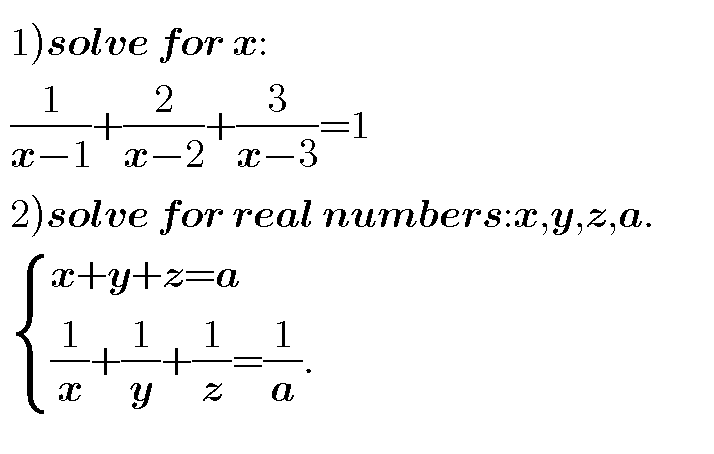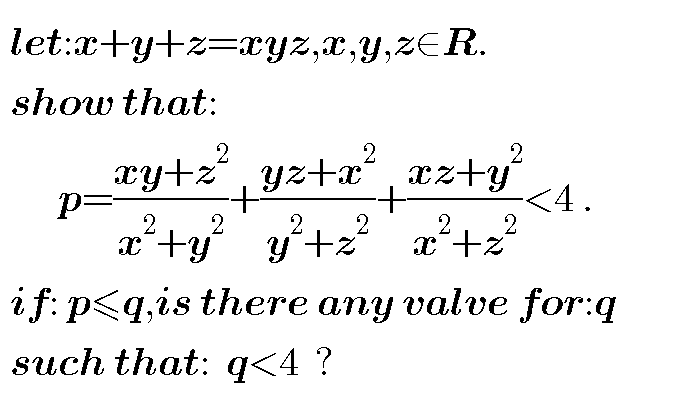
AllQuestion and Answers: Page 1684
Question Number 40406 Answers: 1 Comments: 0

Question Number 40399 Answers: 3 Comments: 0
Question Number 40397 Answers: 1 Comments: 0
Question Number 40396 Answers: 0 Comments: 1
Question Number 40388 Answers: 1 Comments: 0

Question Number 40378 Answers: 1 Comments: 3
Question Number 40376 Answers: 0 Comments: 3

Question Number 40375 Answers: 1 Comments: 0

Question Number 40380 Answers: 2 Comments: 1
$${S}\mathrm{olve}\::\:\:\:\:\:\frac{\mathrm{dy}}{\mathrm{d}{x}}\:=\:\frac{{x}+{y}}{{x}−{y}} \\ $$
Question Number 40370 Answers: 0 Comments: 1
Question Number 40466 Answers: 1 Comments: 5
Question Number 40366 Answers: 0 Comments: 1
Question Number 40355 Answers: 1 Comments: 0

Question Number 40352 Answers: 0 Comments: 1
Question Number 40467 Answers: 1 Comments: 2
$$\int\mathrm{ln}\:\mid\sqrt{{x}+\mathrm{1}}+\sqrt{{x}}\mid\:{dx}= \\ $$
Question Number 40344 Answers: 1 Comments: 2

Question Number 40322 Answers: 1 Comments: 4
Question Number 40321 Answers: 0 Comments: 1
Question Number 40319 Answers: 1 Comments: 3
Question Number 40306 Answers: 2 Comments: 2

Question Number 40300 Answers: 1 Comments: 0
Question Number 40299 Answers: 1 Comments: 0
Question Number 40297 Answers: 0 Comments: 0

Question Number 40285 Answers: 3 Comments: 0
Question Number 40284 Answers: 1 Comments: 0
Question Number 40283 Answers: 0 Comments: 0
Pg 1679 Pg 1680 Pg 1681 Pg 1682 Pg 1683 Pg 1684 Pg 1685 Pg 1686 Pg 1687 Pg 1688
